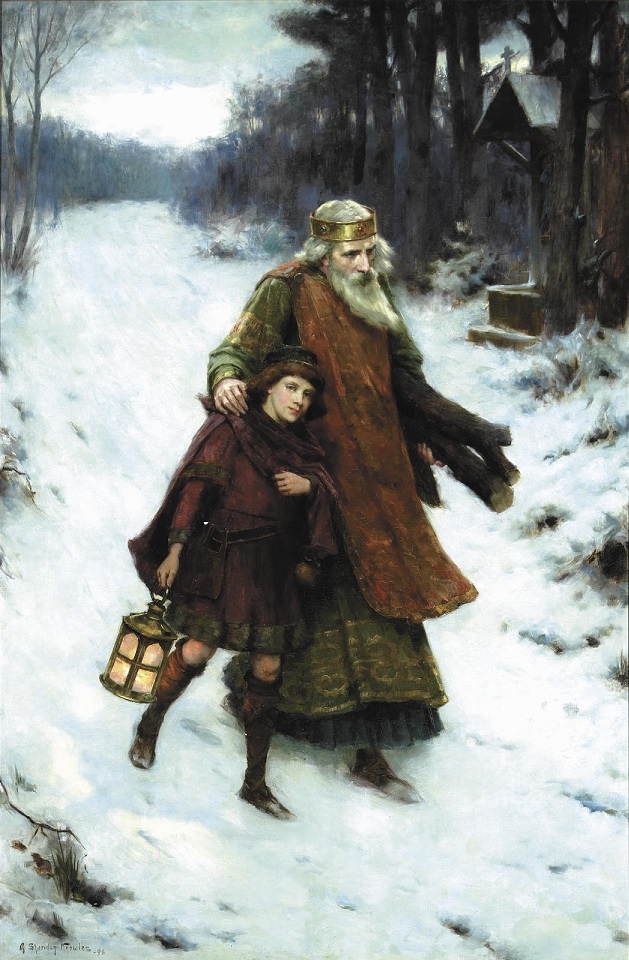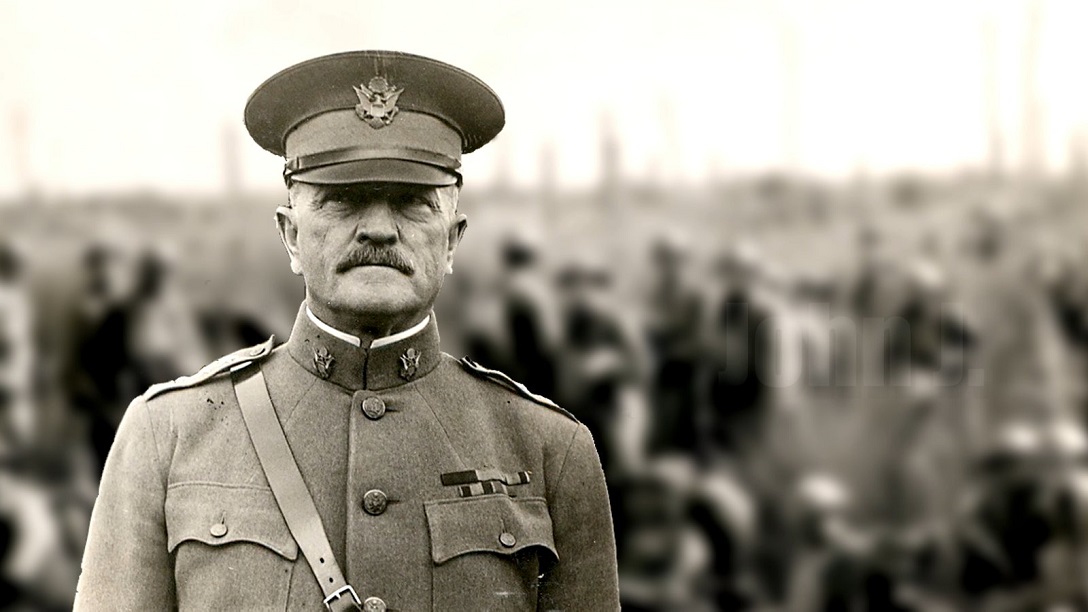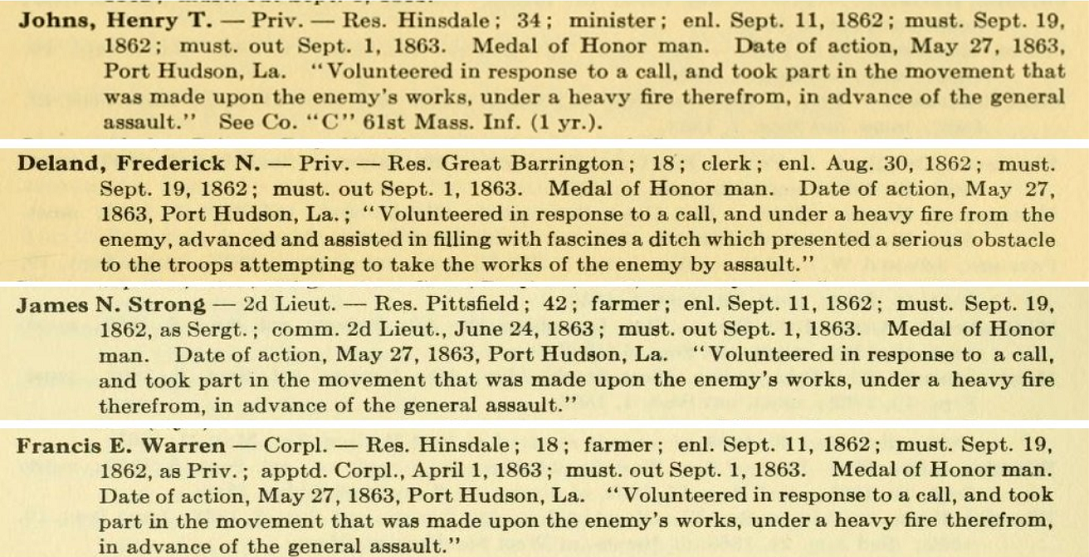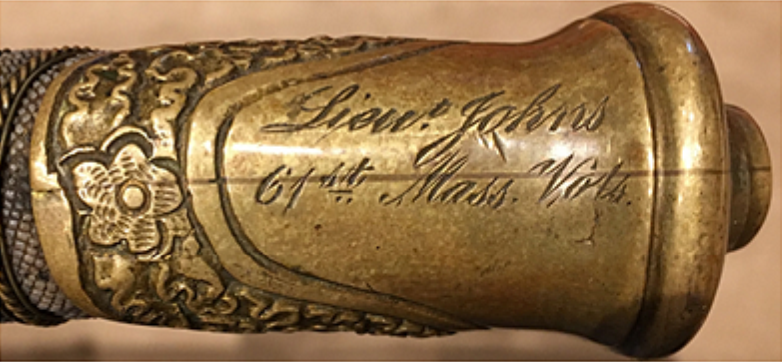 |
| Snowed In - Winter wonderland in the Alps Falkertsee, Austria Photo by Michael Niessl on Unsplash |
Pages
Praetorium Honoris
Thursday, December 29, 2022
Winding Down ...
Wednesday, December 28, 2022
In My Memories ...
 |
| OAFSFOTO |
Tuesday, December 27, 2022
Open Mic "Night"
 |
| (Source) |
Monday, December 26, 2022
On Saint Stephen's Day ...
 |
| Page and monarch, forth they went ... (Source) |
Sunday, December 25, 2022
Saturday, December 24, 2022
John Blackshoe Sends: Serendipity History - An Old Sword Leads To A Fighting Minister, Four Medals of Honor, & Black Jack Pershing's Father-In-Law, - Part Two
 |
| (Source) |
When Henry T. Johns enlisted on September 11, 1862, he was a 34 year old minister from Hinsdale, Massachusetts, and was mustered in September 19, 1862, and Mustered out September 1, 1863. This mentions him as a “Medal of Honor man” to be discussed below. This regiment was supposed to serve for 9 months, but ongoing operations at Port Hudson delayed their departure for home and they actually served about 11 ½ months.
His history of the 49th, is comprehensive, and can be briefly summarized as preliminary training in Massachusetts, then provost marshal duties in New York City, followed by transport via steam ship south around Florida and up the Gulf of Mexico to the mouth of the Mississippi River, then upstream to the vicinity of Baton Rouge. Then they moved north a little more and were part of about 30,000 Union troops besieging about 8,500 Confederates in elaborate defensive positions at Port Hudson. These fortifications were comparable to later WW1 trench lines, and with the advantage of interior lines, the Confederates held out for a very long time. However, Union control of the Mississippi River and the encircling troops on the land side of Port Hudson eventually weakened the defenders and Union assaults finally forced them to surrender. This, and the fall of Vicksburg on July 4, 1863 split the Confederacy, and finally “… allowed the Mississippi to flow unvexed to the sea.”. |
| Port Hudson marked by red "X" (Source) |
 |
| Port Hudson location on the river and about 4.5 miles of Confederate defenses around the town. (Source) |
 |
| Confederate lines at Port Hudson after the surrender. (Source) |
- 1866-1868, Constable in Massachusetts.
- 1880 Census- Journalist- living at 1005 8th Street NW, Washington, DC, where two of his children were clerks in War Dept.
- 1900 Census- Government Clerk living at 301 Spruce St, Washington, DC
- Johns died May 13, 1906, buried in Oakland, California.
 |
| (Source) |
 |
| The Medal of Honor, left to
right: 1862, 1895, 1904 “Gillespie”, and 1944 neck pendant versions. (Source) |
 |
| Downtown Cheyenne in 1869, a year after Warren arrived in the city. (Source) |
 |
| (Source) |
 |
| General of the Armies John Joseph Pershing (Source) |
Friday, December 23, 2022
John Blackshoe Sends: Serendipity History - An Old Sword Leads To A Fighting Minister, Four Medals of Honor, & Black Jack Pershing's Father-In-Law - Part One
Google image search turned up a photo taken circa 1864-1865 while he was in the 61st Massachusetts Volunteer Infantry. The sword in the photo is very likely the one inscribed to him, as it appears to have the sharkskin scabbard, not the standard leather type.
 |
| (Source) |
 |
| (Source) |
 |
| (Source) |
As the Confederates fled west from Petersburg, many rebel troops were captured. Within a few days, General Robert E. Lee’s Army of Northern Virginia surrendered at Appomattox, Virginia on April 9, 1865.
 |
| (Source) |
 |
| (Source) |
 |
| (Source) |
Thursday, December 22, 2022
A Tale of Two Cats
 |
| Anya |
“There are two means of refuge from the misery of life - music and cats.”
― Albert Einstein
"Man, I've seen things ..."
I suppose I should have played some music for the wee kitty, she needed soothing, that's for sure. Me, I could have used a stiff drink if I'd had to go through what Sundae went through.
Poor thing ...
Wednesday, December 21, 2022
What is Christmas?
 |
| Nativity scene in Baumkirchen, Austria (Source) |
According to the Catholic Encyclopedia, the word Christmas originates from the phrase “Cristes Maesse”, first recorded in 1038, which means the Mass of Christ or Christ’s Mass. The word mass is the English version of the Latin word missa, a celebration of the Eucharist, done in memory of Jesus Christ, where Christians eat bread and drink wine. But not all is Latin; in fact, the word Christ comes from the Greek word Khristos, translated from the Hebrew term messiah, which means anointed. (Source)
And it came to pass in those days, that there went out a decree from Caesar Augustus that all the world should be taxed. (And this taxing was first made when Cyrenius was governor of Syria.) And all went to be taxed, every one into his own city. And Joseph also went up from Galilee, out of the city of Nazareth, into Judaea, unto the city of David, which is called Bethlehem; (because he was of the house and lineage of David:) To be taxed with Mary his espoused wife, being great with child. And so it was, that, while they were there, the days were accomplished that she should be delivered. And she brought forth her firstborn son, and wrapped him in swaddling clothes, and laid him in a manger; because there was no room for them in the inn.And there were in the same country shepherds abiding in the field, keeping watch over their flock by night. And, lo, the angel of the Lord came upon them, and the glory of the Lord shone round about them: and they were sore afraid. And the angel said unto them, Fear not: for, behold, I bring you good tidings of great joy, which shall be to all people. For unto you is born this day in the city of David a Saviour, which is Christ the Lord. And this shall be a sign unto you; Ye shall find the babe wrapped in swaddling clothes, lying in a manger. And suddenly there was with the angel a multitude of the heavenly host praising God, and saying,Glory to God in the highest, and on earth peace, good will toward men.And it came to pass, as the angels were gone away from them into heaven, the shepherds said one to another, Let us now go even unto Bethlehem, and see this thing which is come to pass, which the Lord hath made known unto us. And they came with haste, and found Mary, and Joseph, and the babe lying in a manger. And when they had seen it, they made known abroad the saying which was told them concerning this child. And all they that heard it wondered at those things which were told them by the shepherds.But Mary kept all these things, and pondered them in her heart. And the shepherds returned, glorifying and praising God for all the things that they had heard and seen, as it was told unto them. Luke 2:1-20 (KJV)
Tuesday, December 20, 2022
Truce in the Forest
 |
| (Source) |
Monday, December 19, 2022
...Soon it will be Christmas Day!*
Well, Campers, I hope your Holiday Season has been Joyous, Restful yet Fun, and Grateful so far and continues that way through the remainder of the season. It's been fairly busy, not with any protecting the country level priorities (important as they are) rather with a lot of protecting the Family level ones.
Way back at the start of the year, one of our visitors asked, as she was leaving, if she could rent both cabins this year during the Holidays. She and her Husband are Grandparents and she wanted both so she could celebrate with her 3 generational family. 10 people and a Dog or Two. As new Grandparents ourselves, it sounded like a wonderful use of the property, and it was far enough out that neither cabin was reserved, so Mrs. J approved the reservation.
A few months later, the "issues" with LJD cropped up and long term housing was going to be needed while she was in hospital. Mrs. J blocked reservations for one of the cabins so Little J and LJW could have a place to stay while the adventure was going on. Unfortunately, one reservation slipped through her view. Way back in October, she had received a call from the Grandparents asking for an Early Check-in. As she perused the reservation book, and saw the December two cabin reservation, she got a bit concerned. We had "double booked" the cabin. We had a quick PowWow with LJD and LJW about moving into our house for a couple of nights. They agreed and that juggling session was successful.
Now, normally, an early check-in is 2 PM (4PM is the norm). But, she approved it.
Since checkout is NLT 11 AM, that gives us 3 hours to turn the cabin. A bit tight if things are very messed up, but since we've got multiple sets of sheets and towels, quite doable.
Usually.
Unfortunately, the version of English used to describe "Early Check-in NET 2:00 PM" is different apparently in various parts of the country.
The plan of attack in turning the cabin is for the House Cleaner to "Clean" and make beds, gather towels and washcloths etc. Essentially supplies are provided by us. So, Myself and/or Mrs. J, visit the cabin, pick up the dirty stuff and bring it back to Casa Juvat to wash and fold. This weekend, as we're bringing the clean laundry we notice a blanket is missing.
Now, weather in TX has still been pretty warm, but a cold front was scheduled for this weekend (and boy did it!), so a blanket was probably called for. When, and by whom, the blanket disappeared, is somewhat impossible to ascertain, so it's off to Wally World we go. Pick up a new blanket and return home. It's now about 11:30. Previous guests had left about 9:45, so House Cleaner was done with the reset. All we needed to do was put the blanket on the bed.
Come on to the property and who do we see? You got it, the next guests. "Well, you said we could check in early!" Mrs. J did a very diplomatic explanation on why they couldn't check in right now, but could in about a half hour. "But, you said...."
"OK, you can leave your stuff in the cabins. Why don't you go downtown to the "Burg" and do some shopping, while we finish resetting? It'll take us about 30 minutes."
"Harrumph, Harrumph....well ok"
Later, I carefully, diplomatically, politely and quietly stated that "...maybe we should change the verbiage on the site to read "...Early Check-in is available with verbal approval by the owners. Under no circumstances is it allowed earlier than 2PM"
We'll see if that makes a difference.
"Juvat, sounds like your blood pressure was a tad high."
Why, yes, Sarge, it may have been.
So...On to happier topics.
 |
| This picture does a great job applying "Happy" to my outlook |
 |
| 14 Months, Walking, Talking (some of which is understandable) and funny as all get up. |
And, I'm happy to say, that LJD is doing quite well also.
The "Saints of the NICU"** are doing a fine job of trying to reduce everyone involved level's of stress.
Not only does LJD seem to be enjoying her first "Christmas card photo", no doubt the two nurses involved in setting it up enjoyed it, and the sounds of laughter when the picture arrived on various phones in our house were pleasing also. So...Good Job, Guys!
Other good news on that front, She now weighs over 9 lbs. Also, the discussion with the Charge Nurse about Nurse rotation was agreeably resolved. LJD has a crew of 5 or 6 nurses that will tend to her. Something I didn't understand about the feeding issue discussed before didn't involve nutrition per se. Rather it involved breathing.
I probably knew this, but it's so basic that I didn't employ that data in trying to understand the problem. There's no problem with breathing when she's being fed through the nasogastric (NG) tube. The food goes through the NG tube directly into her stomach and air from the nasal canula can still come in through her nostrils. However, when she's trying to bottle or breast feed, she's got to learn (suck, swallow, breathe as the speech therapist calls it) how to suck a little, swallow a little, breathe a little and since lungs are the last organ to develop in a preemie, they are hard pressed to deliver enough air to her as is. Stopping breathing to suck on a nipple...
So, she, and the person feeding her, have to establish a rhythm. Suck for a few seconds, swallow, and breathe for a few seconds. Rinse, repeat.
The 70ML requirement I mentioned last week is the nutritional goal and a way to measure how well she's balancing that rhythm. Sensors will keep track of O2 levels, and Milk consumed will measure for the other. I believe the 70ML number comes from the amount of milk she takes thru the NG tube now and is based on her current weight.
Which, now, makes sense to me.
She is improving, Mrs. J and she, last Wednesday, were able to tag team their way through 30MLs. A definite improvement.
On a tertiary level, yet still critical, progress on Mrs. J's Christmas present passed a Major Milestone this past week. I've still got the usual, and tedious, sanding (lots and lots and lots of SANDING (gratuitous comment made by Little J after he proofed the Baby Data) and touch up process. But, I might just make it.
Pictures will be posted next Monday, I promise!
Merry Christmas to All y'All and Thank You, Lord for your Son!
**While the Catholic Church has not yet completed the process for Canonization on the nurses, but if I get any say, the Staff of the Neo-natal Intensive Care Unit are shoo-ins.
As, my next post will be up Christmas Morning, let me wish all y'all a Merry Christmas. I'll take care of the "Happy New Year" next Monday.
Peace out, Y'all!












